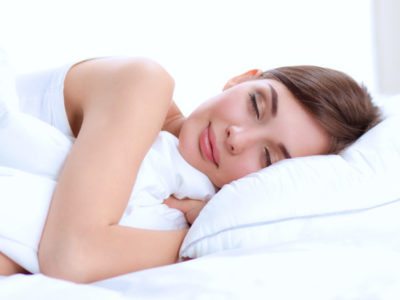Table of Contents[Hide][Show]
Bears do it. Bees do it. Some squirrels, bats, and even hamsters do it. Hibernation is the solution for survival in winter months for many species in the animal kingdom, yet humans experience no apparent change in pace despite the season. Quality sleep is crucial for your health, and there’s a serious case to be made for making it a priority this winter.
See below for just five reasons to take a page from the bears and embrace some extra shuteye this season.
1. Sleep helps you stay fit.
Countless research has confirmed the link between proper sleep and maintaining your physique, but this is extra welcome news when pumpkin pies and Christmas cookies are competing for your affections. Your holiday weight gain could stem from a lack of sleep.
The reason why is simply down to hormones. A proper night’s sleep helps you better regulate ghrelin and leptin, the so-called “hunger hormones” which contribute to feelings of hunger and fullness. A recent study published in the Obesity Journal in October found a significant increase in the ghrelin levels of sleep deprived patients. The elevated ghrelin levels contributed to more snacking, primarily from carbohydrates, and those patients were found to have a higher consumption of calories from sweets. Without a restorative sleep to keep your hormones in check, your body can be fooled into thinking you need to finish that pecan pie, contributing to that dreaded holiday weight gain.
Not to mention, you’re putting yourself at risk for a whole host of weight-related illnesses, such as obesity, high blood pressure and Type 2 Diabetes. A good night’s sleep could be all it takes for your hunger hormones to function properly, telling you when you actually need a second serving or when you should step away from the ham.
2. Sleep helps you stay positive.
The crossing guard is giving you attitude, you stepped in a puddle, and the barista served you a filter coffee when you ordered espresso. Before writing off today as a wash, consider if your mood is a result of your lack of sleep. You may be skewing negative when better quality sleep could help you be positive.
According to a study published in the Journal of Sleep Research, poor sleep quality is linked to greater depressive symptoms, anxiety, and mood disturbances. Of the 154 participants in the study, they found that patients who had poor sleep quality had better memory for negative stimuli and a lower ability to focus on non-emotional stimuli. Rather than fixate on giving that barista a piece of your mind, get a good night’s sleep before going back to that coffee shop. Your attitude depends on it.

3. Sleep helps you better manage stress.
You’re trying to wrap up your workload for the year, find unique presents without falling into financial ruin, and clocking some serious miles traveling to celebrate with loved ones. There have never been more demands on your time, and you’re stressed. There’s not enough hours in the day to cross everything off your list, and you’re left wondering how the hell Kringle does it. The solution is simple, again—sleep.
According to a study published in Brain, Behavior, and Immunity, patients after one night of sleep deprivation had increased levels of stress. When you’re stressed, cortisol and inflammatory proteins are released into the blood. Too much of their presence disturbs the circadian rhythm and disrupts sleep, so you could feel like you’re going in circles. Beat stress at its own game by committing to a good night’s sleep. Know when to call it quits for the day, and you’ll be much more equipped to prioritize and keep stress at bay.
4. Sleep improves your immunity.
Cold and flu season is a drag, and blocked nasal passages and sinus pressure can make holiday travel downright painful. Even if you sanitize everything in your path in an attempt to shield yourself from cold and flu season, your greatest defense may be a good night’s sleep.
Several studies support the findings that sleep deprivation is linked to an increased susceptibility to infection. In this case, that extra hour of sleep could make all the difference. According to a study published in Critical Care Nurse, healthy patients who reported an average of less than 7 hours of sleep a night were nearly three times more likely to acquire a cold than were those who got 8+ hours of sleep.
Related
10 Tips To Get Through Flu Season with Natural Health and Wellness
With this flu season in full swing, protect your body with these natural health and wellness tips and tricks. Stay healthy friends!
5. Sleep keeps you looking young.
Whether you relish in getting carded or want to age like Clooney, we’d all like to set the clock back a few years. Time travel is still currently unavailable, but the long-awaited location of the Fountain of Youth may be closer than you think.
You guessed it—your bed! According to an experimental study conducted by the Skin Study Center staff at Case Western Reserve University/University Hospitals, there’s a link between chronic poor quality sleep and accelerated intrinsic aging. Poor sleepers had more uneven pigmentation, wrinkling, and loss of subcutaneous fat along with other signs of aging compared with subjects who got adequate sleep. So, if for no other reason, get some sleep for vanity’s sake.
Happy hibernating!
You May Also Like…





